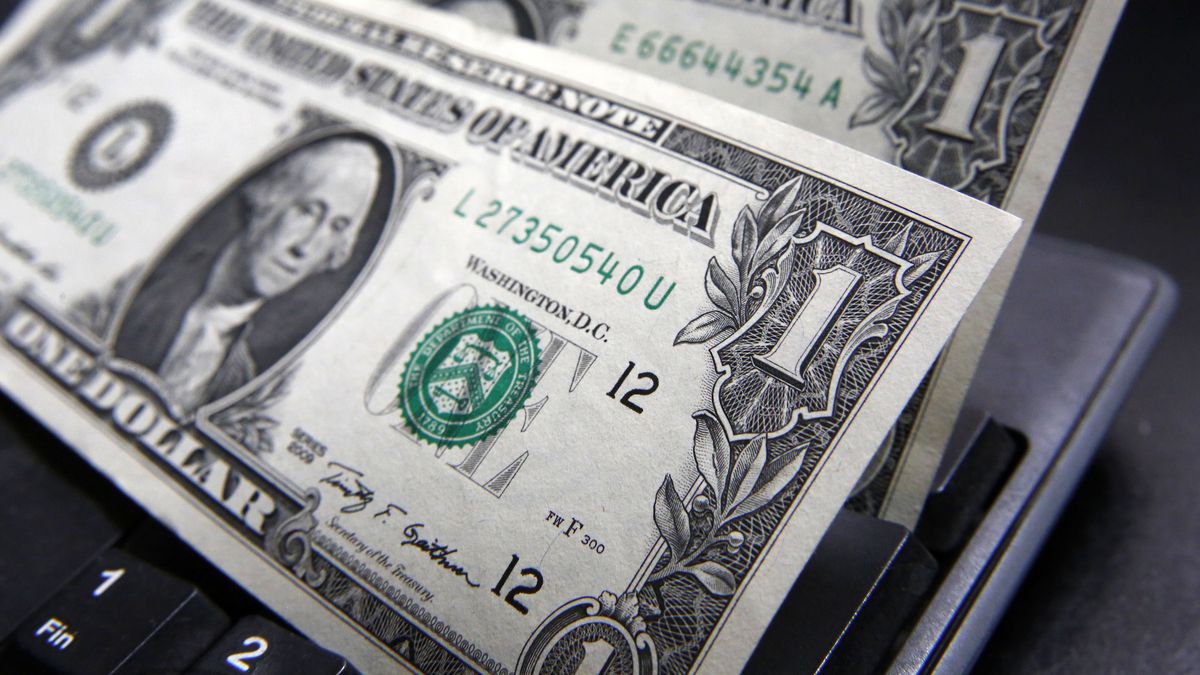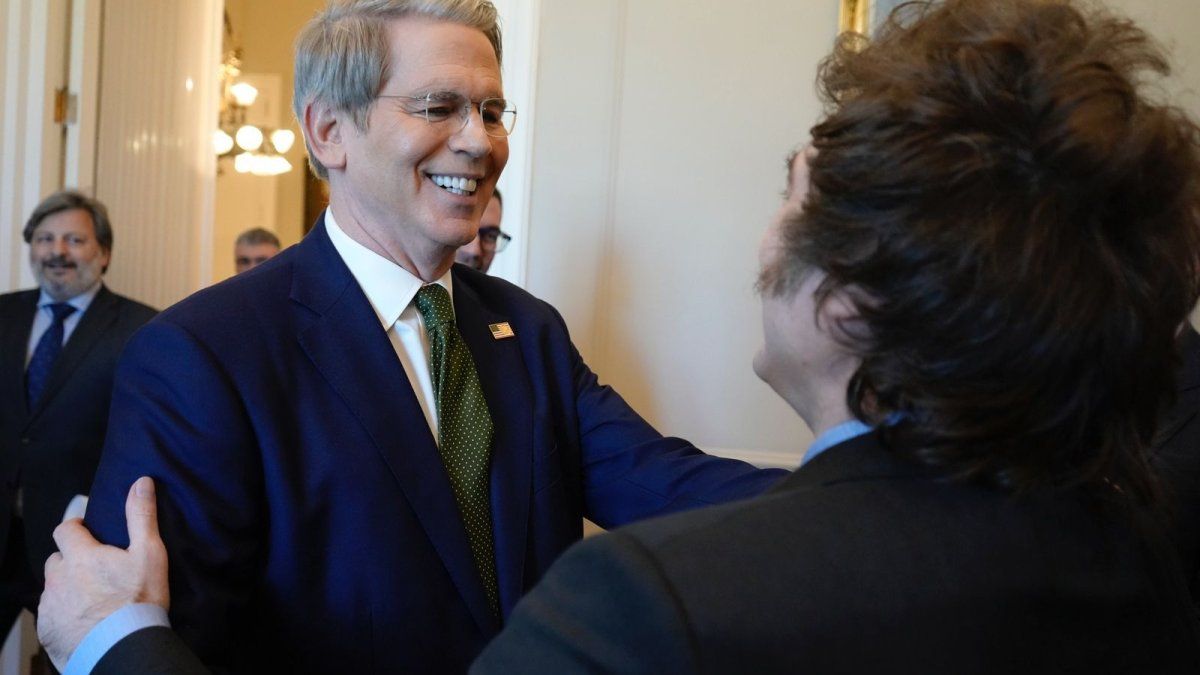This standard penalizes any exchange negotiation that is carried out without the intervention of the institution that must carry out said operations and without being authorized for this purpose, as well as any false statement related to the purchase and sale of coins. That is to say, it qualifies as a crime any exchange operation that is not carried out for the amount, currency or exchange rate, within the deadlines and other conditions established by the regulations in force. So Pugliese’s action falls into these categories.
However, the defense of the accused objected that he did not know the limit of US$10,000 to buy official dollars and that is why he acquired a greater sum. Furthermore, he assured that no banking entity let him know that this restriction existed and they even facilitated the operation.
Official dollar: what was the crime of excessive purchase like?
And, according to the accused’s story, the operations were carried out in September 2019 through Home Banking, without any impediment. Likewise, he was never informed by the banking or financial entities with which he usually operated that the restrictions prevented him from carrying out the action and he said that, until having been notified of the first request, he had no knowledge of the prohibition ordered by the BCRA.
Likewise, given that the operations were carried out on the first business day after the dictation of the regulations mentioned of BCRA (issued on September 1), the defendant claimed that he was unaware of the rule and that this is due to the multiple provisions of the monetary regulator that change dynamically and permanently, preventing users from knowing them in a timely manner.
However, it was determined that, at this point, Pugliese lied because, at carry out exchange operations declared that he was aware of the restrictions established by the Central and, in addition, he took the necessary measures to be able to violate the limit of the sum equivalent to $10,000 when carrying out different exchange operations, each of them within the allowed limit, with three different financial entities. This makes evident “the intentionality of their actions,” according to the BCRA summary.
BCRA Central Bank
The Central Bank of the Argentine Republic regulates the official dollar market.
Ignacio Petunchi
Thus, as determined by the investigation, Pugliese violated the current legal regime when purchasing US dollars excessively and falsifying the respective sworn statements.
On the other hand, the accused received a BCRA notification on April 15, 2021 in which he was granted the possibility of regularizing his situation by returning the foreign currency obtained in excess of regulations and it took almost four months to fulfill that requirement.
Finally, on August 6, 2021, he returned the extra US$14,500 that he had purchased illegally to the BCRA. And he excused himself by saying that the delay was due to the fact that, during that time, he had his accounts blocked.
The cause, with the summary of the SEFyCwas brought to a federal court in Junín, Province of Buenos Aires and the intervening judge ruled that, although he was guilty, given that he had no prior causes and that He had returned the money as requested. (although he did it many months later), he had to pay the Minimum possible fine stipulated in only US$1.
Exchange regulations in Argentina, a problem
It seems that the message that is constantly given in Argentina in exchange criminal matter is: “Take risks, it has no cost. If they don’t catch you, you keep the dollars; If they catch you, you return the surplus and that’s it.”
In our country, as is popularly said, “no one goes to prison” and the criminal law, which should serve as a prevention tool for certain antisocial behaviors, is not applied effectively. This is already installed in society and is one of the reasons that make people not afraid to engage in certain crimes, such as going to a cave to operate, even when they know it is not legal, or raping an established limit to access the official dollar, like in this case.
And it is precisely in the tax and exchange area where the lack of application of effective penalties is most seen, which is why it stops functioning as a threat to prevent or deter incorrect or illegal behavior.
Also, in this case, the sanction seems small taking into account that the lighter penalty provided in the law for the first time a crime of this type is committed is a fine of up to ten times the amount of the offending operation.
However, as the expert lawyer in criminal law explains, “the standard sets a maximum of the value of the fine, noting that this can be “up to ten times the value of the amount of the infringing operation and it does not say what the minimum is”, so the ruling does not violate current law in principle.
One dollar: A justified fine?
“The margin is high and, therefore, The decision does not violate the Foreign Exchange Criminal Law, on the one hand. But, beyond that, judges, if they consider it, can deviate from the norm and apply lesser sentences as long as it is in favor of the accused. The analogy in favor of the accused is not prohibited by the principle of legality in criminal matters,” explains Cornejo Costas.
Likewise, he points out that he considers that the judge’s decision, as strange as it may seem, “is reasonable.” And, on the other hand, he mentions that the own Penal Codein article 59, provides for the closure of the criminal case for the “comprehensive repair of the damage,” which was what the accused, Pugliese, finally did when he returned the illegal surplus.
Thus, the judge pointed out that “the legal good protected by the exchange regime, in cases like this, it is negligible…and the damage was repaired”, reasons with which he justified the ruling. “Is about a crime which, compared to others handled by economic criminal law, represents an insignificant amount,” points out the criminal lawyer.
However, there is still a possibility that the prosecutor appeals the decision, but it is unlikely that he will do so, because, as one source points out, “he has no incentive.” Meanwhile, the BCRA He cannot do so because he acts as an investigator, not as a complainant. He is the one who puts together the entire file and submits it to the judge to dictate the sentence.
Consequently, it is most likely that the entire process will end here and the cost for having violated BCRA regulations be so only u$s1laughable, justified by regulation and, once again, eroding the credibility of Economic Criminal Law.
Source: Ambito




